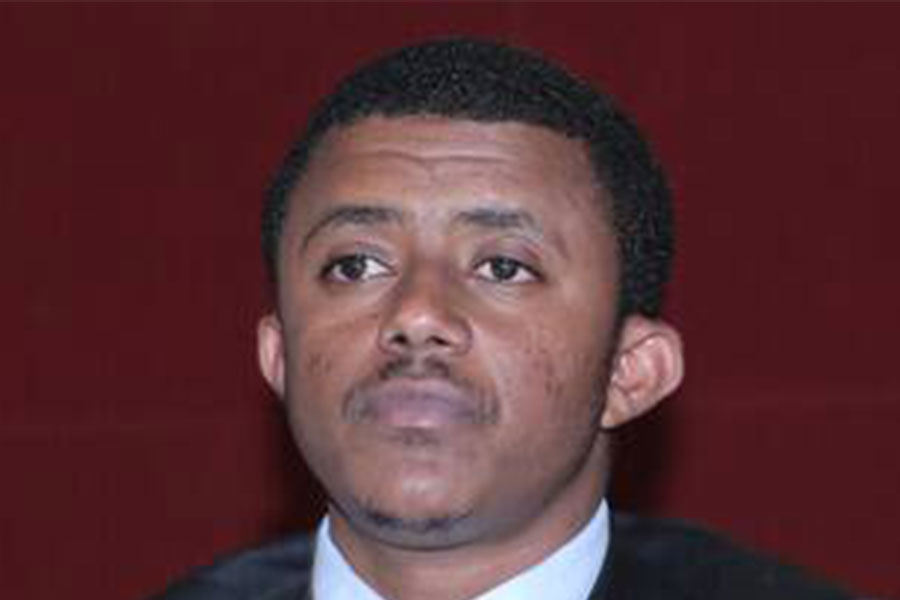
Radar | Apr 15,2024
Administrators of the federal courts are awaiting legislative approval to unfasten administrative and non-judicial staff from the civil service structure. Judicial officials say the move is necessary to impede staff turnover plaguing the country's courts and attract talent.
The administration of Prime Minister Abiy Ahmed (PhD) has been trying to reform the justice system since 2018. A council advising judicial reforms, comprising 15 members of former judges, lawyers, and academics, was established to ensure judicial autonomy the following year. Under Chief Justice Meaza Ashenafi, the council oversees the administrative and service procedures changes. Redesigning the court structures and the judicial administration are among its preoccupations.
The Federal Court law saw four amendments since its initial passage in 1996. The last change was made 15 years ago.
Parliament ratified a law last year, allowing federal courts to manage their budgets and recruit staff independently. The courts determine their own budget, pending approval from Parliament. It rubber stamped a 289 million Br budget for the judiciary this year.
The Federal Judicial Administration Council, comprising representatives from each of the three tiers of the federal court system, hires and administer judges. Nonetheless, supporting staff have remained under the civil service structure, where the pay scale makes hiring and retaining staff has been challenging to judicial administrators.
The Federal Supreme Court requires 930 non-judicial administration staff but operates with 614 personnel. Solomon Ejigu, public relations director at the Supreme Court, blames low salaries and stiff hiring procedures of the Civil Service Commission. The same goes for the Federal High Court, which requires over 1,500 supporting staff for its seven branches, including Dire Dawa and a centre in Hawassa. It counts 875 among its non-judicial personnel.
“The supporting staff is expected to shoulder heavy workload, but they're paid low salaries,” said Solomon. “While these pushes personnel to quit, it also makes the jobs less attractive in the eyes of potential job seekers.”
Over 70 court clerks at the Federal High Court make an average salary of 2,000 Br a month, while custodial staff receive half as much.
Misganaw Chanie, director of human resource management at the Federal High Court, believes branching out from the civil service structure would give the institutions the autonomy and power to fill with qualified staff.
“Employees who shoulder heavy workloads should be compensated better,” said Misganaw.
He had served in the committee that drafted the regulation.
The Federal First Instance Court has around 1,800 personnel working in non-judicial positions, which officials claim does not meet half the workforce needed to process the 128,000 cases the Court handled through its 11 branches last year. First Instance Courts had jurisdictions over civil suits involving up to half a million Birr; a ceiling increased to 10 million Br beginning last year.
For a year and a half now, Alemnew Shumo has been working at the information desk of the Federal First Instance Court in Lideta. He earns a gross monthly salary of 2,300 Br. Initially, his tasks were limited to providing information and directions to people visiting the court to attend hearings. However, as the number of staff working as clerks delivering a summons, orders and verdicts dwindled, Alemnew took additional responsibilities.
"Several staff members have been leaving due to the workload," he said.
He and his colleagues had high hopes for high pay since they first heard talk of the courts branching out from the civil service a year ago, but nothing has come yet.
"I'm only here hoping that it'll change soon," Alemnew told Fortune.
Attorneys like Liku Worku have also observed the heavy workload of non-judicial staff. He has witnessed the burden placed on staff such as clerks and court scribes during his frequent visits to courts over the past decade.
"You might see a long line of people waiting to get services from a few or even a single staff member," he said.
A study conducted by the World Justice Project, a non-governmental organisation based in the United States, two years ago on the effectiveness of court systems in 138 countries ranked Ethiopia at 115 for civil cases and 106 for criminal proceedings.
Officials at the Civil Service Commission confirmed that the federal courts are to branch out following the ratification of the proclamation last year.
“They've asked the Commission to assist,” said Nigist Getachew, public relations head at the Commission.
Three years ago, the Ministry of Revenues and the Customs Commission were excluded from the civil service payroll structure to pay their staff competitive salaries. The Federal Auditor General was also granted autonomy from the civil service structure three years ago.
Chief Justice Meaza has been raising issues of administrative autonomy during addresses to parliamentarians over the past few months. She cautions MPs that separating non-judicial staff would significantly impact efficiency and service delivery. The Chief Justice also wrote a letter to MPs three months ago, urging them to speed up reviewing the regulation.
The courts tabled a revised regulation to Parliament last July.
It would entail the formation of a 13-member board - comprising representatives from the three courts, parliament's Standing Committee for Legal, Justice, & Democracy Affairs, and the Civil Service Commission - to oversee the hiring and management of administrative staff. Etsegenet Mengistu, chair of the standing committee, has yet to receive the regulations.
“No draft regulation has been sent to our committee,” Etsegenet told Fortune.
PUBLISHED ON
Mar 26,2022 [ VOL
22 , NO
1143]

Radar | Apr 15,2024

Commentaries | Sep 16,2023

Fortune News | Jul 13,2020

Advertorials | Jun 03,2025

Radar | Jul 29,2023

Radar | Apr 19,2025

Fortune News | Dec 17,2022

Fortune News | Aug 19,2023

Editorial | Jul 05,2025

Editorial | Jun 07,2025

Dec 22 , 2024 . By TIZITA SHEWAFERAW
Charged with transforming colossal state-owned enterprises into modern and competitiv...

Aug 18 , 2024 . By AKSAH ITALO
Although predictable Yonas Zerihun's job in the ride-hailing service is not immune to...

Jul 28 , 2024 . By TIZITA SHEWAFERAW
Unhabitual, perhaps too many, Samuel Gebreyohannes, 38, used to occasionally enjoy a couple of beers at breakfast. However, he recently swit...

Jul 13 , 2024 . By AKSAH ITALO
Investors who rely on tractors, trucks, and field vehicles for commuting, transporting commodities, and f...

Oct 4 , 2025
Eyob Tekalegn (PhD) had been in the Governor's chair for only weeks when, on Septembe...

Sep 27 , 2025
Four years into an experiment with “shock therapy” in education, the national moo...

Sep 20 , 2025
Getachew Reda's return to the national stage was always going to stir attention. Once...

Sep 13 , 2025
At its launch in Nairobi two years ago, the Africa Climate Summit was billed as the f...